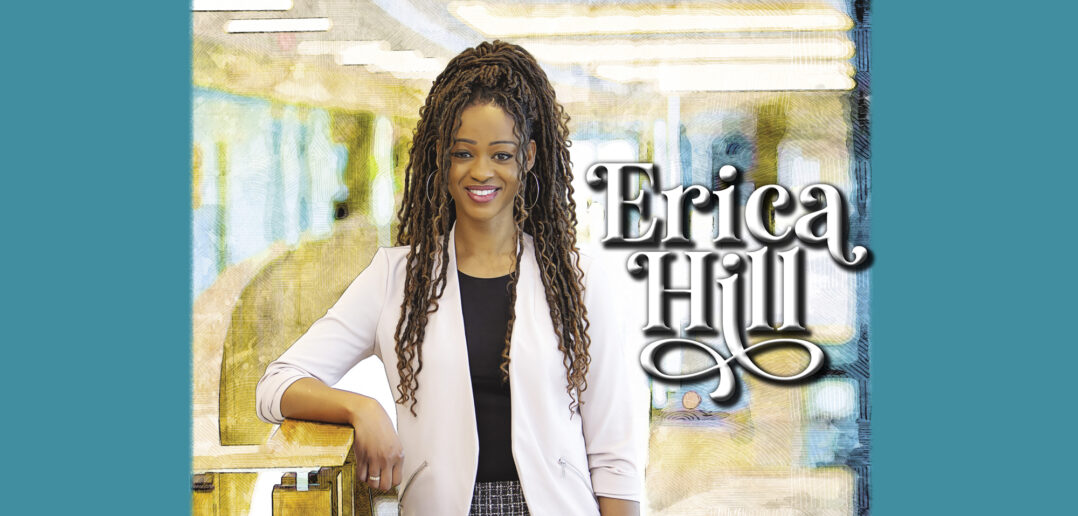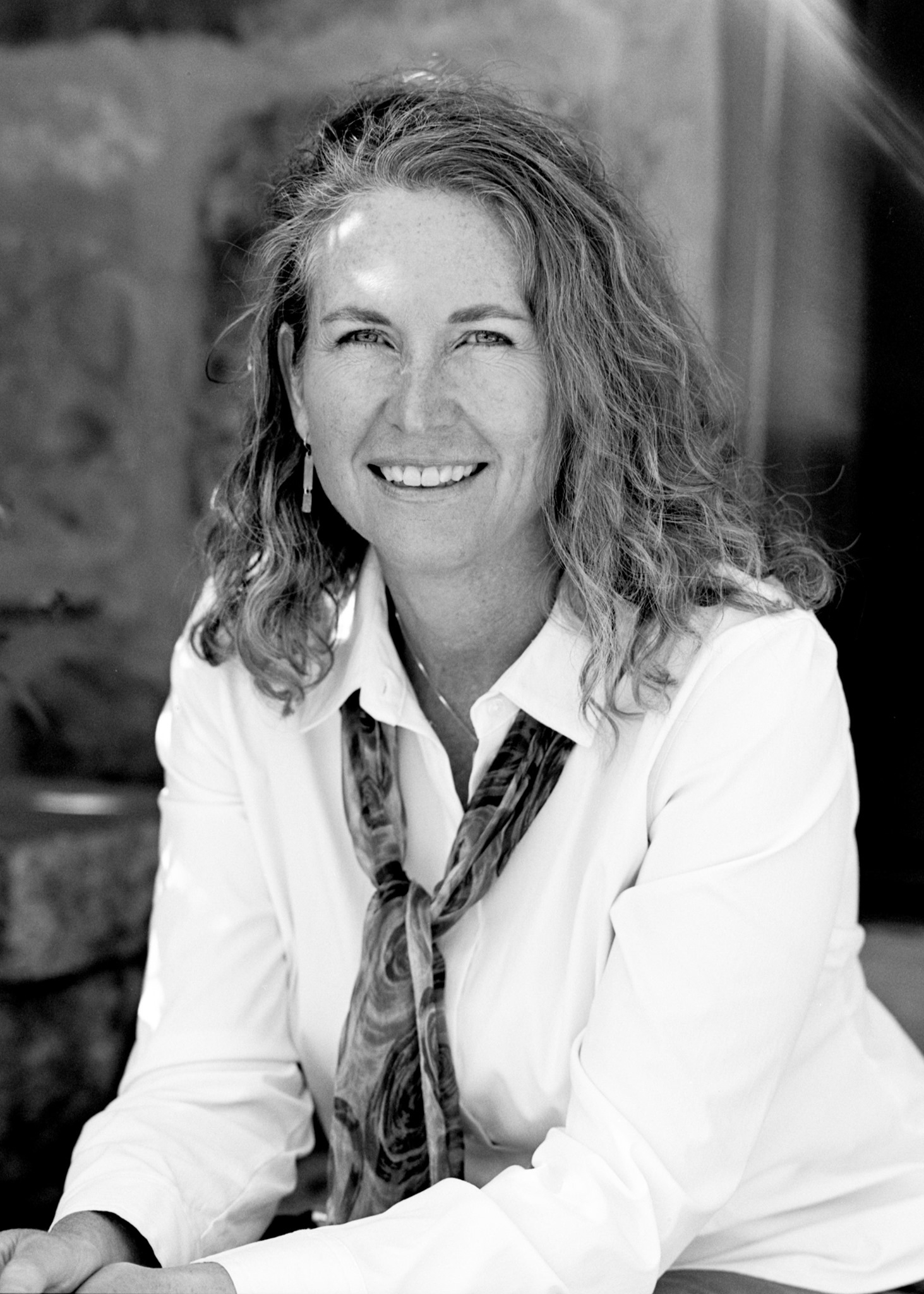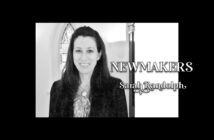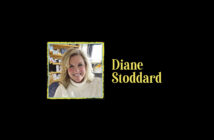| story by | |
| photo by | Steven Hertzog |
| OPEN A PDF OF THE ARTICLE |
With a passion for health equity, Erica Hill has gone above and beyond to ensure all community members are afforded the right of good health without fear of being denied because of their consequences, poverty or discrimination.
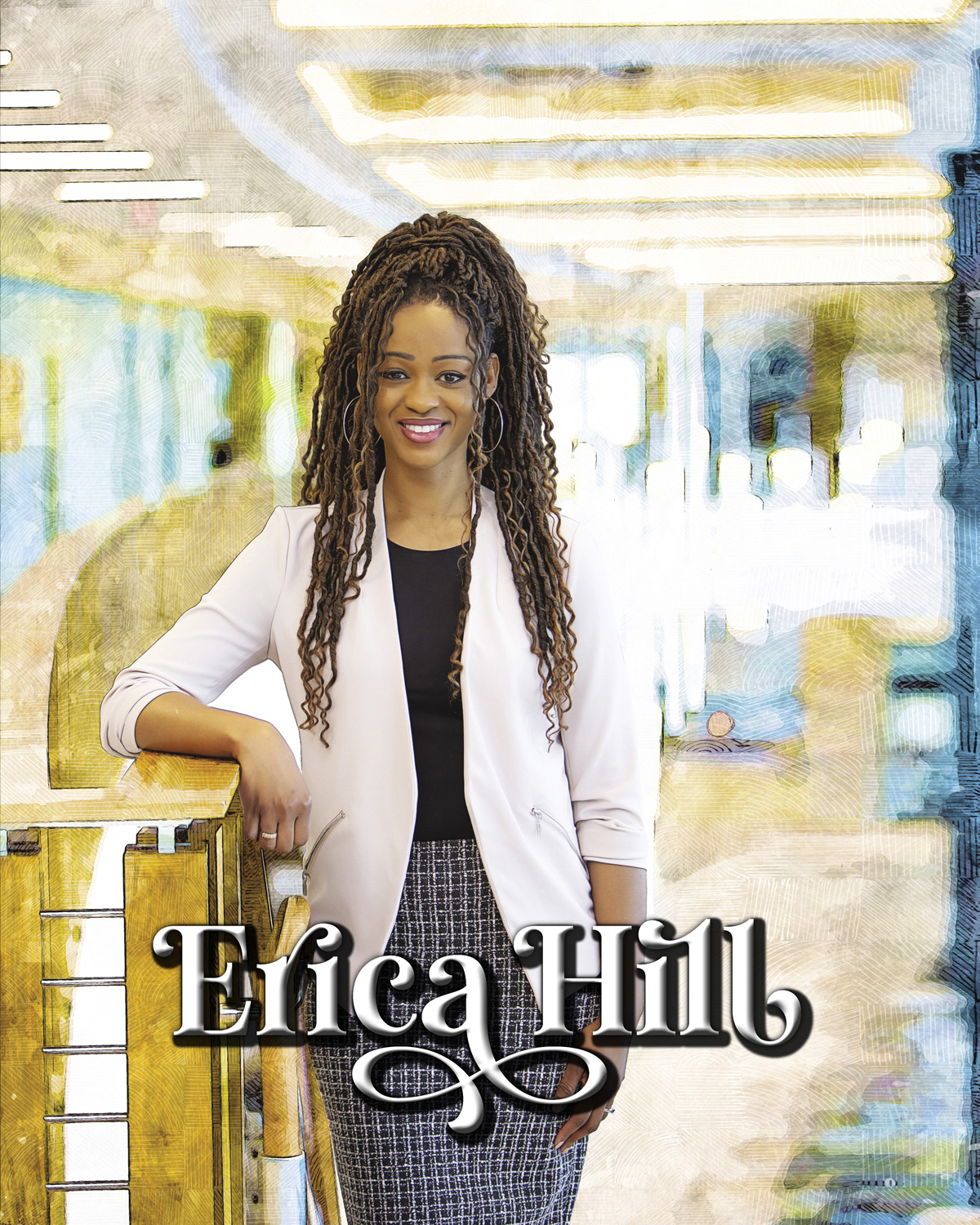
Erica Hill: Woman of Impact
The pandemic, race, schools—they’re all headline issues that local leaders are striving to address. Among those leaders is Erica Hill, a health-equity advocate whose collaborative work in health care, philanthropy and education is helping build a stronger Lawrence.
“She is passionate, and she spreads that passion,” says Sheryle D’Amico, LMH Health’s senior vice president for clinical integration.
That’s most obvious at LMH Health, where Hill is director of Health Equity, Inclusion and Diversity, and at the LMH Health Foundation, where she is director of finance and strategic initiatives. But she is also past president of the Lawrence Public Schools USD 497 Board of Education and a member of the Lawrence-Douglas County Public Health Board, Heartland Regional Health Equity Council and numerous other boards and organizations. Her goal: to remove barriers to health wherever they exist.
“Equity work goes way beyond the four walls of a hospital. It goes way beyond the four walls of a school building. It’s a community effort,” Hill says.
The Opportunity for Health
Health equity means that everyone has a fair and just opportunity to be as healthy as possible without constraints such as poverty and discrimination, or their consequences, including lack of access to jobs, education, housing, safe environments and health care, according to the Robert Wood Johnson Foundation, the nation’s largest philanthropy dedicated solely to health.
It’s not an entirely new idea, according to a 2019 study published by the International Journal for Equity in Health. References to health-equity studies date back to 1801, and the World Health Organization and United Nations General Assembly in the 1940s asserted that “every human being is entitled to the highest attainable standard of health without the distinction of race, religion, political belief, economic or social condition.” The phrase “health and equity” was first used in a scientific article in 1966; studies on health equity began accelerating in 1990, the study says.
Hill herself became aware of it while pursuing a master’s degree in health-care leadership from Friends University. She’d already earned a degree in human biology from the University of Kansas in 2003 and moved back to Lawrence in 2012 to continue her studies. When she began researching Black maternal health for a project, she was taken aback by statistics showing that Black women have higher rates of poor outcomes when diagnosed with breast cancer, even when studies controlled for income and other factors.
“It’s about so much more than access,” Hill says. “That’s what piqued my interest.”
Hill wanted more direct experience in the health-care industry, so she began volunteering at the LMH Health Foundation in 2013. When the foundation hired her in October of that year, Hill immediately impressed her new colleagues, D’Amico says.
“What I really appreciated was her vision, her confidence and her leadership,” says D’Amico, who is Hill’s friend and mentor. “She thinks about the community, the future, the kids. She thinks about those who might be left behind by any decisions that are being made.”
Hill held several positions at the foundation before being named director of finance and strategic initiatives, where she develops ways of advancing health equity through philanthropy. She builds on already-established programs such as the Help and Healing fund (which assists patients with financial barriers to care) and the Catch a Break Fund (which helps cancer patients and survivors pay for day-to-day needs), and brings health equity to the forefront.
Research increasingly shows that’s necessary. According to the Lawrence-Douglas County Health Department’s 2021 Health Equity Report, outside factors known as social determinants of health greatly impact health outcomes. These include economic stability, education access and quality, health-care access and quality, built environment (factors such as housing and crime) and social and community context (discrimination because of identity, resilience and social cohesion, and levels of incarceration).
“A majority of what impacts someone’s health happens outside of the hospital,” says Hill, who in 2019 was named one of the Association for Healthcare Philanthropy’s “40 Under 40” award winners. “Education, access to food and housing, where you live and if there are sidewalks there … all those types of things are external factors of what makes someone healthy. People are starting to understand that now.”
A Natural Fit
LMH Health has long worked to help patients address those factors and, in 2014, hired the Rev. Verdell Taylor as its Inclusion, Diversity and Equity (IDE) manager. Taylor is also a former LMH Health trustee and former pastor of St. Luke African Methodist Episcopal Church, in Lawrence. As Taylor began updating LMH Health’s health-equity mission, he says Hill immediately volunteered to help.
“She was there from the beginning,” he says.
Hill served on committees, offered administrative support and helped develop programming. When LMH Health created the director of health equity and inclusion position in 2020, Hill was a natural fit for the role. She now works with Taylor to expand IDE opportunities for both hospital employees and the community, and reports directly to LMH Health President and CEO Russ Johnson.
“We collaborate on everything that deals with IDE work,” Taylor says of Hill. “It’s wonderful to have a person who believes in it and is part of the work.”
Their goal is to instill equity throughout the entire LMH Health system, something that overlaps with Hill’s continued role at the LMH Health Foundation. Some efforts are hospital-focused, such as creating a recent series of workshops on eliminating implicit bias in medical documentation. Hill also provides leadership in various groups, including the Community Health Equity Advocacy Council, an LMH Health-hosted advisory body, and Health Equity Impact Advisors, which make recommendations to senior leadership on IDE issues.
“When making decisions—like a change in human resources policy, opening a new building or eliminating a service—the team that is responsible for leading those discussions and decisions will include an Equity Impact Advisory member at the table from the very beginning,” D’Amico says.
Hill also co-chairs LMH Health’s Health Equity Advancement Team (HEAT), an interdisciplinary team of physicians, staff, administrators and others who strive to create an inclusive, equitable clinical environment along with the necessary infrastructure for eliminating health-care disparities.
“We make data-driven decisions, so when we have that data about our community and see that X, Y and Z are issues, we as a hospital system can then ask, ‘What can we do to alleviate this?’ ” says Hill, who draws frequently on her experiences as a member of the Lawrence Chamber of Commerce’s 2018 Leadership Lawrence class.
Hill has also participated in the Kansas Leadership Center’s “Your Leadership Edge” training program since 2017; she’ll complete the third stage of that this year. Such experiences have proven vital, Hill says, because health equity poses what she calls adaptive challenges. Unlike technical challenges (such as a broken arm), these are broader, more complex factors (like race, ethnicity, gender and income) that greatly impact health.
“It’s not clear-cut, and it’s not easy,” Hill says.
LMH Health in 2021 updated its Health Equity Advancement Strategy to establish operational pathways for staff and medical providers to infuse health equity in their day-to-day activities. The hospital also applies its health-equity assessment tool to every project, decision or policy discussion to better examine who benefits or is disadvantaged by potential changes, and how to mitigate possible adverse outcomes. Continued collaboration between LMH Health and its community partners is also key to expanding health equity, Hill says. And Hill, herself, has proven influential in those efforts, D’Amico says.
“She has a gift of being able to have people with disparate beliefs work together and pull toward a common vision,” she adds.
Leadership Academy Success
Nowhere is that more evident than in the LMH Health Summer Leadership Academy, which launched in 2019. The academy introduces high school sophomores, juniors and seniors to careers in health-care administration, medicine and allied health through paid summer internships. These engage students in leadership and health care, help them explore and prepare for post-secondary programs and careers, allow them to make professional connections and offer volunteer and scholarship opportunities.
It’s a comprehensive experience that includes everything from shopping for professional attire (donors cover the cost) and learning how to behave at a lunch to providing them with letters of recommendation. That assistance doesn’t end when summer does, either. Hill says most students and mentors have ongoing relationships, and her bulletin board is filled with notes and letters she’s received from past participants.
“Of everything I’ve done, I am really proud of that program,” says Hill, who was invited to deliver a presentation on the academy during the National School Boards Association’s 2023 annual conference. “We have been able to really help students in our community.”
Help, however, isn’t a strong enough word for Dr. Anthony Lewis, superintendent of schools for USD 497, which partners with LMH Health and the LMH Health Foundation.
“The work Erica is doing with the Leadership Academy is literally life-changing for students and their families,” Lewis says. “This is her legacy work.”
Making Her Voice Heard
Hill first connected with Lewis while he was conducting “listening and learning” tours in the community shortly after he was hired as superintendent in 2018. Hill, who lives in Lawrence with her husband and two children, was at the time a member of the Parents of Color Advisory Team (it was then called the District Equity Leadership Team Advisory) and other groups, and president of the Boys & Girls Club of Lawrence.
“Even then she was coming out to make sure her voice was heard in that space,” Lewis recalls.
Hill then upped the ante by winning a seat on the school board in 2020—just in time for COVID-19. The board focused immediately on crafting and managing the districtwide response to the pandemic; the budgetary shortfall that followed posed another challenge.
“To cut $6.4 million out of the budget is not an easy thing in a community like Lawrence, where there is a lot of engagement, and there are a lot of opinions,” Lewis says. “She handled that with a lot of grace.”
Even while grappling with such issues, Hill “always centered equity at the front of every decision,” Lewis says. The board has in recent years introduced an equity policy to ensure student outcomes are not predicated on race, socioeconomic status, disability or other factors that are often marginalized, and it uses an equity analysis impact tool in decision-making.
Hill took all that in, listened to other perspectives, asked pertinent questions and then brought people together to consider solutions. It’s a quiet but effective approach, Lewis says.
“She is what I would call a velvet crowbar,” Lewis says. “She can get the work done in a subtle, soft way, even though she’s a very strong and fierce individual.”
That’s because Hill believes that inclusion is an essential element of health equity, and she counts among her favorite quotes one often attributed to Maya Angelou: “ … people will never forget how you made them feel.”
“That is so important. We need to do the work, but truly, it’s about people having a sense of belonging,” Hill says. “That unity and togetherness—as a leader, I want to create that type of environment.”

